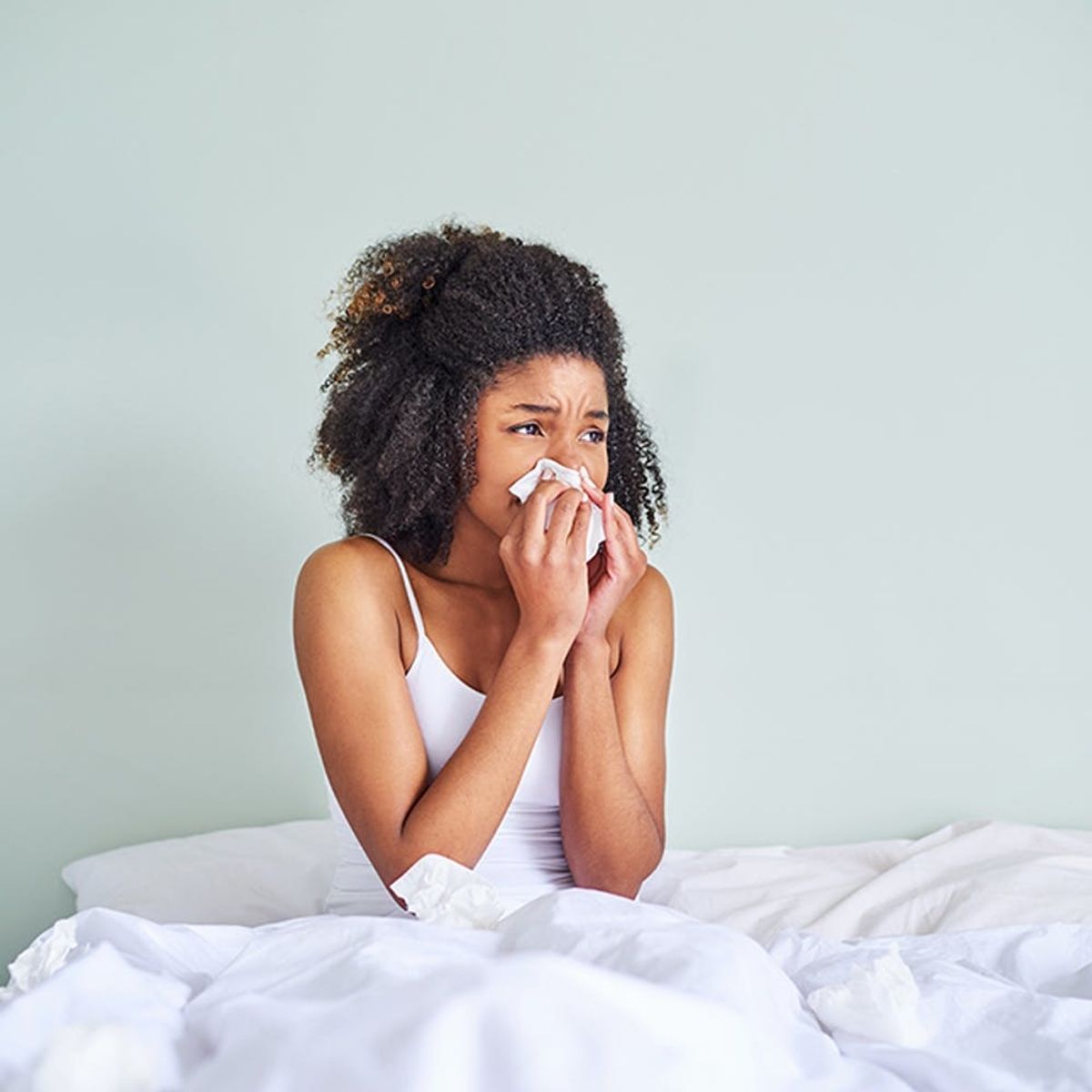Stay healthy, folks.
Why You Should Be Worried About Flu-Related Complications This Season

If all the buzz around the majorly nasty flu virus going around this season has you worried, you’re not alone — and it’s certainly nothing to take lightly. According to the CDC, more than 20,000 people have been hospitalized with the flu since October, and, even scarier, up to 4,000 people are dying from complications each week. We talked to several doctors to find out more about the risks and what you can do to stay healthy.

Common Flu-Related Complications
Mercy Medical Center’s Dr. Susan Besser shares that it’s common for people to experience fatigue, high fever, body aches, coughing, head congestion, nausea, vomiting, and diarrhea with the flu virus. “Complications from the flu can include dehydration, if associated with vomiting and diarrhea… also, in rare cases, generalized sepsis from the virus can lead to organ failure,” she explains.
Some of the most common flu complications are respiratory infections like pneumonia and bronchitis. In rare cases, this can kill you. Although they’re more common in people who are high-risk (think pregnant women, young children, or people over the age of 65), this year we’re seeing more young and healthy adults suffer from these types of ailments.
Another potential complication you may not be aware of: The flu can cause hives. Dr. Tania Elliott, chief medical officer at EHE, points out that hives are usually triggered by food, medication, or infection, but “the virus itself can trigger the allergy cells to become activated and release histamine, which is the main chemical responsible for causing hives,” she says. Why worry about hives? The itchiness they cause can lead to scratching, which may expose your skin to infection.
“Nationally, this has been a bad year for serious adverse outcomes, including hospitalization, organ failure, and even death,” shares Geisinger’s Dr. Thomas Morland. “In addition to the usual affected groups such as the very young, the very old, and the frail or immunosuppressed, this year we’re seeing more people in general with scary or even life-threatening cases of the flu. Given that my practice is mostly older adults, I feel fortunate that the worst I’ve seen so far has been patients who were hospitalized but ultimately made full recoveries.”
Tips for Preventing and Dealing With the Flu
Every doctor we talked to mentioned that the best prevention is washing your hands frequently and avoiding contact with others who have the flu. Some also pointed out that the current vaccine may offer about 20 percent protection this year. But if it’s too late, and you already have the flu, there are things you can do.
“When you’re sick, stay home! If you sneeze or cough, do it into the crease of your elbow and not your hand. Keep a trash can next to your bed for your dirty tissues and avoid placing them on the nightstand where germs will accumulate,” Dr. Elliott recommends.
Dr. Besser reminds patients to maintain a healthy immune system while they’re sick; good nutrition, proper sleep, and elimination of stress are all important ways to boost your body’s ability to fight the virus. And your mother was right about chicken soup: Dr. Elliott agrees this home remedy can boost the immune system and stimulate neutrophils, which are cells that fight infection.
“Echinacea and zinc have also demonstrated some benefit in decreasing the duration of cold and flu symptoms…[and] fresh ginger is my go-to, either ingested or inhaled. It has immune-boosting properties and can decrease inflammation in the sinuses and nasal passages. Try adding fresh ginger to a pot of boiling water to make yourself a humidifying, anti-inflammatory treatment,” Dr. Elliott shares.
Tell us how you’re avoiding or handling the flu on Twitter @BritandCo.
(Photo via Getty)













